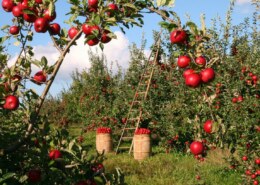What Problems Does Organic Agriculture Solve?
Organic agriculture is a system which is the opposite of conventional agriculture. Conventional agriculture uses artificial fertilizers and pesticides while organic agriculture uses natural and sustainable farming practices.
Organic agriculture is the best way to ensure food safety, provide benefits to health, as well as an important part of green urbanism.
There are many agricultural problems that we can solve with organic farming. These include environmental issues as well as health concerns. The benefits are also evident in terms of financial and economic growth.
Organic agriculture is the practice of cultivating and growing crops without using pesticides, herbicides, insecticides or other chemical fertilizers to improve production. Organic farmers work with nature to grow plants in healthy, sustainable ways.
Organic agriculture seeks to maintain soil productivity through crop rotation and green manure. It also seeks to produce more nutritious food by avoiding synthetic pesticides, synthetic fertilizers, and genetic modification.
Organic agriculture solves problems such as climate change, water scarcity, soil erosion and biodiversity losses. It is also environmentally friendly because it uses less chemicals. By practicing organic agriculture, farmers can ensure that they are not threatening themselves or their farm with hazardous chemicals-
A significant benefit of organic practices is that they reduce the need for fossil fuels for transportation which causes air pollution.
What Is Organic Agriculture and What Problems Does It Solve?
Organic agriculture is a farming system that sustains the health of the environment and people. Organic farmers use crop rotation, use natural fertilizers, and avoid the application of pesticides or synthetic chemicals.
Organic agriculture is a rapidly growing industry with huge potentials to improve food security, environmental health and social justice.
Organic food is made up of crops that are grown without the use of chemicals, artificial fertilizers, or genetically modified organisms. Organic food isn’t produced with petroleum-based pesticides, herbicides, fungicides and insecticides; it’s produced by nature.
Organic farming practices are more cost-effective because they don’t require as much fertilizer and pesticides to grow a crop and produce an organic product as conventional methods do. On average it takes less than half the energy to farm organically compared to conventional methods. Organic food production also saves water because water-intensive crops like corn can be grown in dry areas where irrigation is not necessary or needed.
Why Organic Agriculture is the Future of Food Production
Organic farming is a way of farming that aims to produce high quality food while minimizing the use of chemicals, artificial fertilizers and other inputs. Organic farmers try to avoid using any synthetic substance in order to maintain healthy soil, water and wildlife. There are many advantages of using organic farming practices – it is sustainable, healthy for the environment and good for farmers’ health.
Organic agriculture has high environmental impacts because it can reduce the use of pesticides that result in pesticide run-off into natural habitats. The benefits of organic farming also go beyond reducing chemical inputs: it can create affordable place for locals to grow their own vegetables as well as provide opportunities for rural employment.
Some people argue that organic agriculture isn’t really profitable because most consumers still buy non-organic produce because its cheaper than conventional options.
With the increase in population, food production cannot keep up with demand. If we want to maintain a sustainable future, we need to be more creative with our food production. That is why more and more people are turning to organic farming.
Organic agriculture is more sustainable than other types of farming because it uses less pesticides and chemicals which pollute our soil, water and air. It also contributes on a larger scale to the health of the environment by using crop rotation, cover crops and composting practices that protect the soil from erosion.
Organic agriculture is not just limited to fruits and vegetables. It can be used on a large scale for livestock farming as well. It helps regulate the health of animals by providing them with fresh feed supplemented with organic fertilizers rather than conventional ones that may contain harmful chemicals.



Leave an answer
You must login or register to add a new answer.